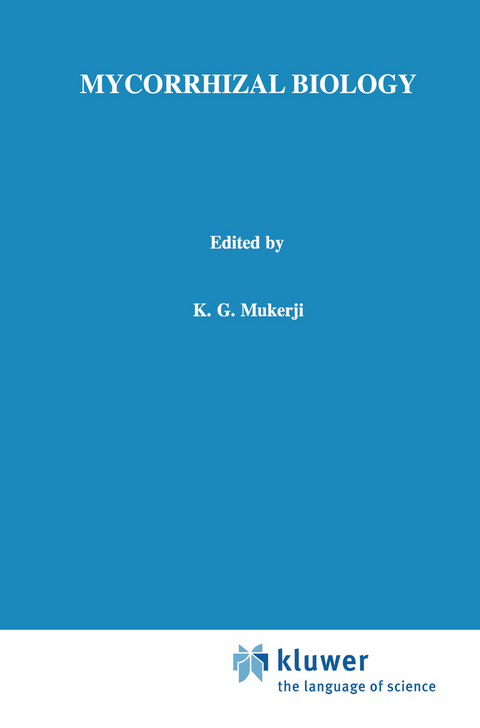
Mycorrhizal Biology
Kluwer Academic/Plenum Publishers (Verlag)
978-0-306-46294-8 (ISBN)
`The fundamental problem the world faces today, is the rapidly increasing pressure of population on the limited resources of the land. To meet the ever increasing demands of expanding populations, agricultural production has been raised through the abundant use of inorganic fertilizers, the adoption of multicropping systems and liberal application of chemical pesticides (fungicides, bactericides, etc. ). Though the use of chemicals has increased the yield dramatically, it has also resulted in the rapid deterioration of land and water resources apart from wastage of scarce resources. This has adversely affected the biological balance and lead to the presence of toxic residues in food, soil and water in addition to imposing economic constraints on developing countries.' (From the Preface)
Mycorrhizal Biology addresses the global problem of land degradation and the associated loss of soil productivity and decline in soil quality caused by exploitative farming practices and poor management in developing countries, and the far reaching socio-economic and ecological consequences of its impact on agricultural productivity and the environment. In the light of a need for sustainable development, a new system of productive agriculture, to ensure the efficient management of agricultural inputs for long term high crop productivity with minimum damage to the ecological and socio-economic environment is essential. The management of mycorrhizal fungi will form a significant part of such a system and this work investigates the key association of plant roots with mycorrhizal fungi, known to benefit plants under conditions of nutritional and water stress and pathogen challenge and analyses the developments in our understanding of the genetic loci that govern mycorrhiza formation.
1. Evolution of Mycorrhiza.- 2. General Aspects of Mycorrhiza.- 3. Molecular Approaches to Mycorrhizal Ecology.- 4. The Growth of VAM Fungi under Stress Conditions.- 5. Mycorrhizal Plants in Response to Adverse Environmental Conditions.- 6. The Global Carbon Cycle and Global Change: Responses and Feedbacks from the Mycorrhizosphere.- 7. Ectomycorrhiza - An Overview.- 8. Molecular Genetics of Ectomycorrhizal Fungi.- 9. Plant Mineral Nutrition through Ectomycorrhiza.- 10. Mycorrhizosphere: Interaction between Rhizosphere Microflora and VAM Fungi.- 11. The Role of Root Exudates in Arbuscular Mycorrhiza Initiation.- 12. Mycorrhiza in Control of Soil Borne Pathogens.- 13. Mass Productions of VAM Fungus Biofertilizer.- 14. Mycorrhizal Technology in Plant Micropropagation Systems.- 15. Vesicular Arbuscular Mycorrhizal Fungi Improves Establishment of Micropropagated Plants.- 16. VAM Associations in Weeds: Its Significance.- 17. Orchidaceous Mycorrhizal Fungi.- 18. Effects of Agrochemicals on Mycorrhiza.
| Erscheint lt. Verlag | 30.4.2000 |
|---|---|
| Zusatzinfo | XII, 336 p. |
| Verlagsort | New York |
| Sprache | englisch |
| Maße | 155 x 235 mm |
| Themenwelt | Naturwissenschaften ► Biologie ► Botanik |
| Naturwissenschaften ► Biologie ► Genetik / Molekularbiologie | |
| Naturwissenschaften ► Biologie ► Mikrobiologie / Immunologie | |
| Naturwissenschaften ► Biologie ► Mykologie | |
| ISBN-10 | 0-306-46294-X / 030646294X |
| ISBN-13 | 978-0-306-46294-8 / 9780306462948 |
| Zustand | Neuware |
| Haben Sie eine Frage zum Produkt? |
aus dem Bereich


